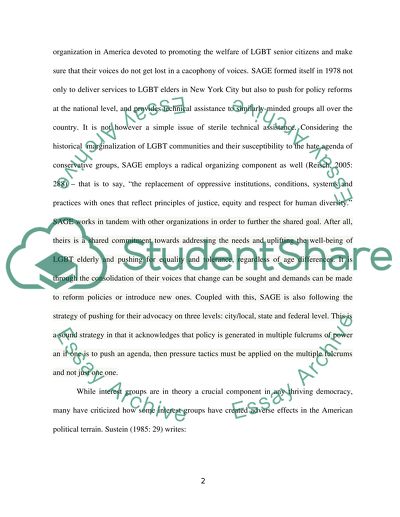Cite this document
(“Interest Groups and Their Role in American Politics Research Paper”, n.d.)
Interest Groups and Their Role in American Politics Research Paper. Retrieved from https://studentshare.org/politics/1442785-interest-groups
Interest Groups and Their Role in American Politics Research Paper. Retrieved from https://studentshare.org/politics/1442785-interest-groups
(Interest Groups and Their Role in American Politics Research Paper)
Interest Groups and Their Role in American Politics Research Paper. https://studentshare.org/politics/1442785-interest-groups.
Interest Groups and Their Role in American Politics Research Paper. https://studentshare.org/politics/1442785-interest-groups.
“Interest Groups and Their Role in American Politics Research Paper”, n.d. https://studentshare.org/politics/1442785-interest-groups.


